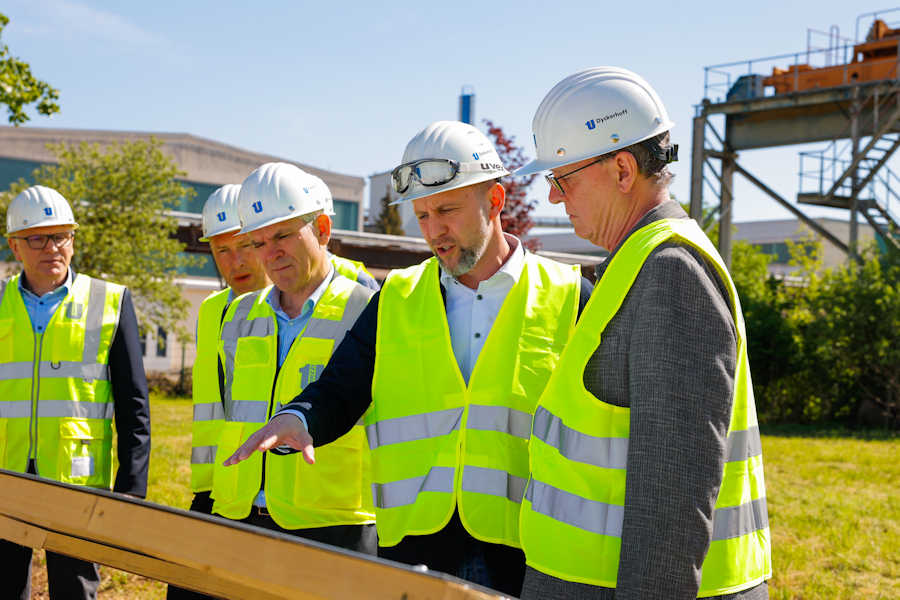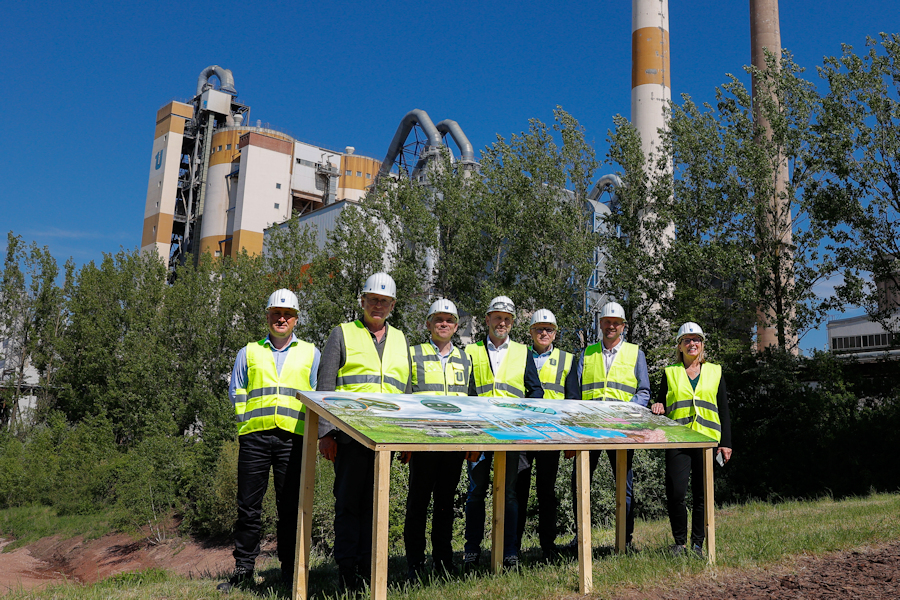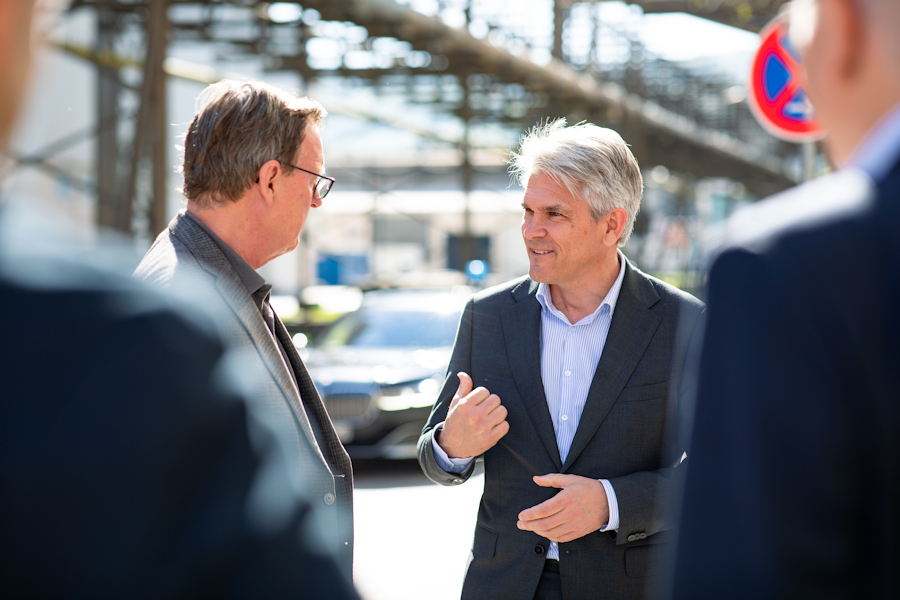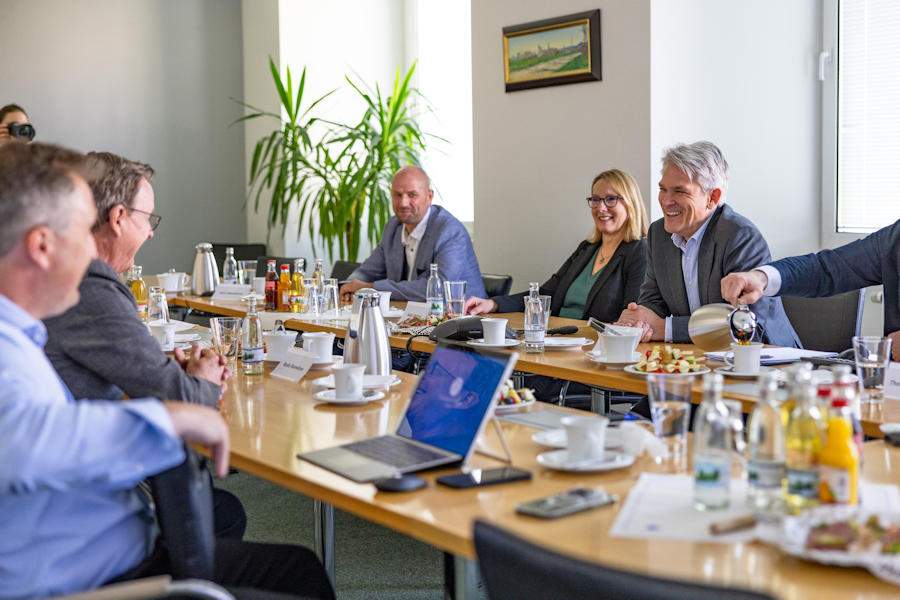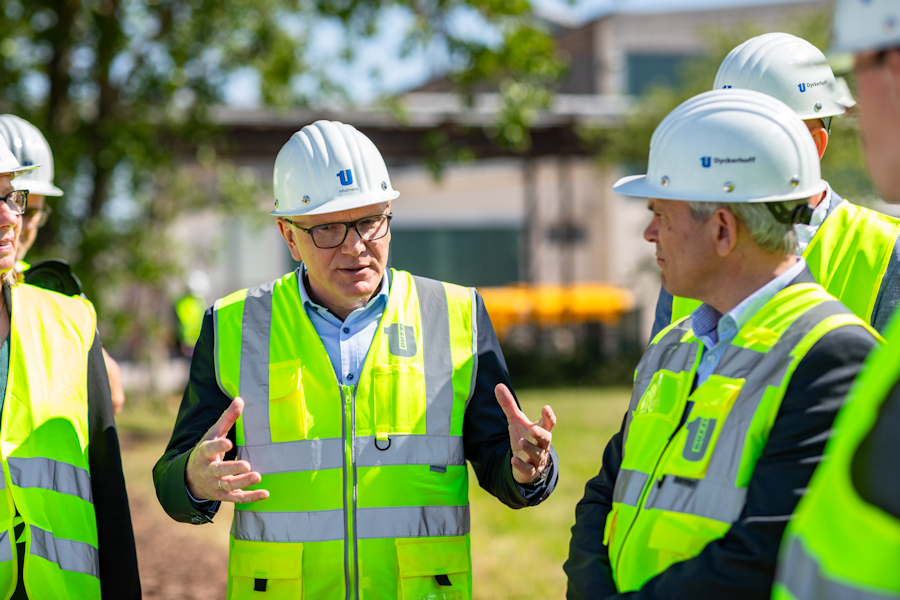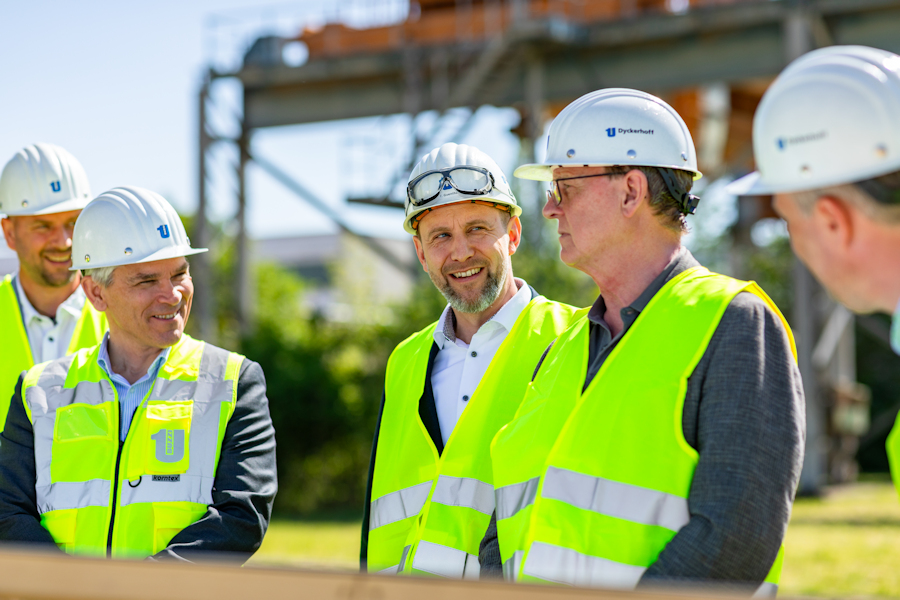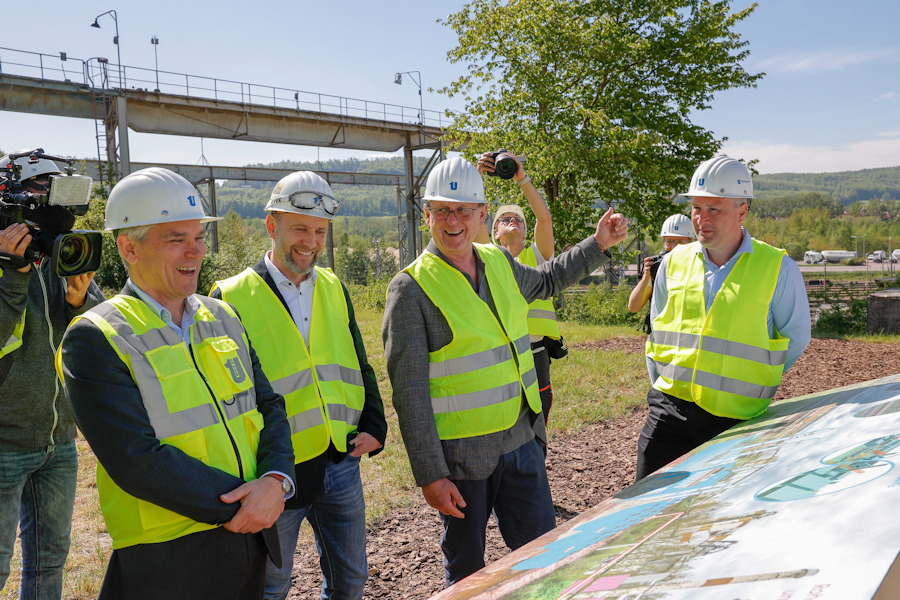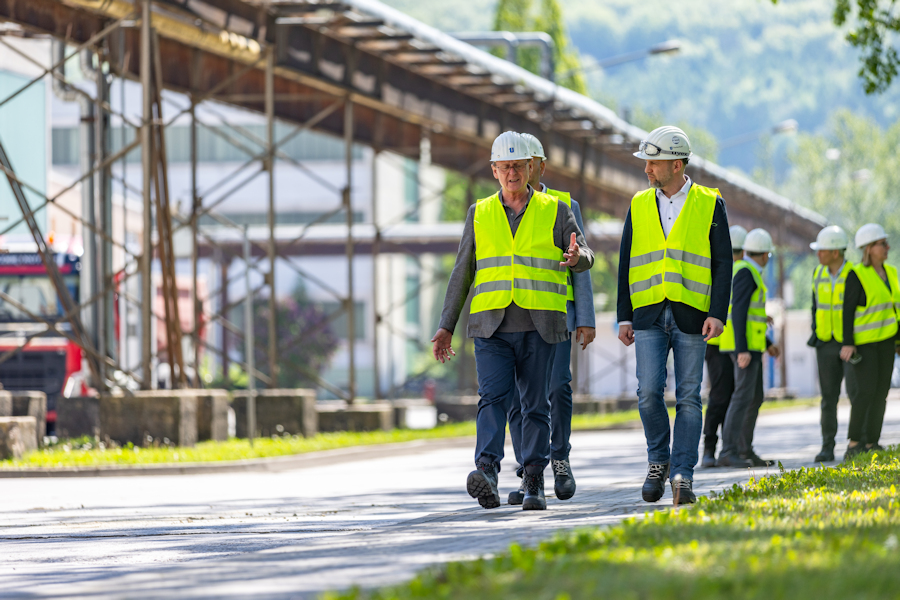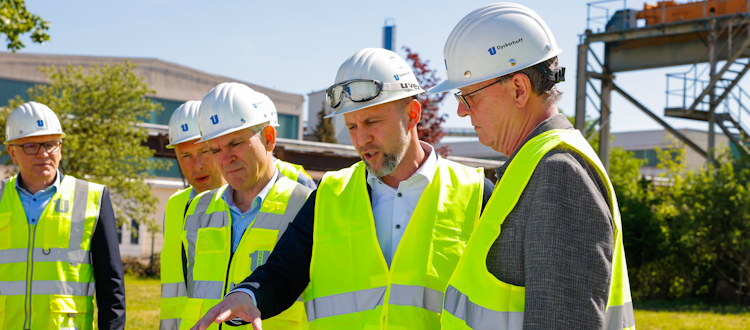
Dyckerhoff plans major investment in carbon capture installation
During the visit of Thuringia's Prime Minister Bodo Ramelow at the Dyckerhoff cement plant in Deuna on May 2, Dyckerhoff Managing Director Patrick Klein had important news to announce: Dyckerhoff is planning to invest around EUR 350 million in the construction of a carbon capture installation at its Deuna plant in Thuringia. "Once the investment is completed, the Dyckerhoff plant in Deuna will be one of the first plants in Germany to produce and sell Net-Zero cement," said Klein.
"I am delighted that Deuna is also leading the way here. The carbon-neutrality of our industry is anything but trivial, especially in the cement production sector, as a significant reduction in CO2 cannot be achieved through alternative energies or fuels alone. Solutions for process-related emissions are needed here. The planned installation demonstrates the ambition and the will to continue setting standards in the cement industry," said Prime Minister Ramelow during his visit.
Following the successful completion of two feasibility studies, detailed planning of the installation has already begun. Dyckerhoff is thus carrying out pioneering work on the way to decarbonizing the cement industry. According to the current planning status, the carbon capture facility could go into operation in 2029. The entire investment is subject to local regulatory approvals and the approval of the Dyckerhoff Supervisory Board. The plant will be specifically efficient and take all relevant environmental aspects into account. Applications for public funding are currently underway.
Prime Minister Ramelow visited the area earmarked for the construction of the CO2 capture installation on site, as well as the very efficient rail connection that already exists on the plant premises. This enables the Net-Zero cement to be transported to customers further afield and at the same time ensures the logistical framework conditions for the removal of the captured carbon dioxide. The installation is designed to reduce the Deuna plant's CO2 emissions by around 620 thousand tons per year, which means a reduction in the CO2 emissions in Thuringia from industry, commerce and energy conversion of more than 20%.
Decarbonizing the cement industry is a particularly complex task on the road to climate neutrality, as the process emissions generated by burning limestone are unavoidable. The aim of the investment project in Deuna is to capture these CO2 emissions in order to produce a Net-Zero cement for the construction of the future.
About Dyckerhoff:
Dyckerhoff is an international manufacturer of cement and ready-mixed concrete. We are a Buzzi company. Buzzi is based in Italy with plants in 14 countries and around 9,500 employees worldwide. In Germany, we operate seven cement plants and around 110 ready-mixed concrete plants. Further production sites are located in Luxembourg, the Netherlands and various Eastern European countries. Since the company was founded 160 years ago, Dyckerhoff's head office has been located in Wiesbaden.
We support our customers not only with high-quality products, but also with construction advice and other services. We use limited resources responsibly. In our CO2 roadmap, we have committed ourselves to further reducing CO2 emissions throughout our cement and concrete value chain by 2030 and to net zero by 2050.
Title picture:
Prime Minister Bodo Ramelow listens to an explanation of the planned CO2 capture installation during his visit at the Dyckerhoff cement plant in Deuna (from left to right: Rüdiger Matheis, Head of Plant Operations Dyckerhoff; Christoph Gehrmann, Thuringian State Chancellery; Patrick Klein, Managing Director Dyckerhoff GmbH; Dr. Thomas Günther, Plant Manager Deuna; Bodo Ramelow, Prime Minister of Thuringia).
Picture credits title/slideshow: 1,2 and 7 – Thuringian State Chancellery/A. Lange; 3 to 6 and 8 – toniplustobi.com
For further information please contact:
Dyckerhoff GmbH
Communication & Marketing
Katja Gärtner
Tel.: +49 611 676-1183
Katja.Gaertner@dyckerhoff.com


